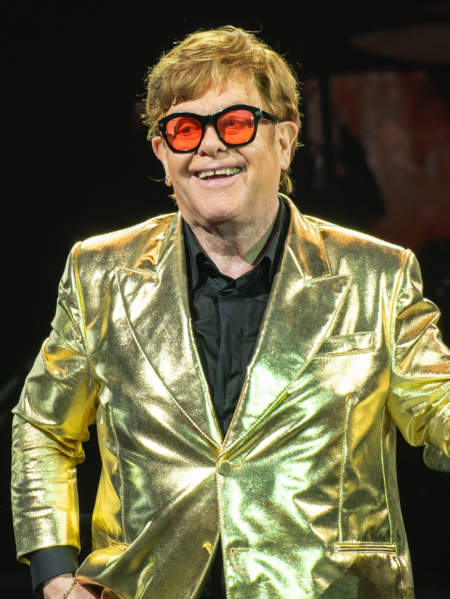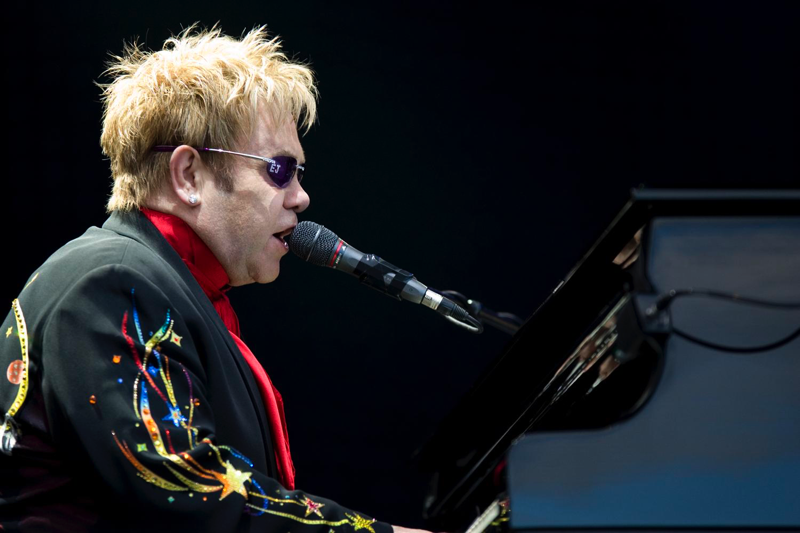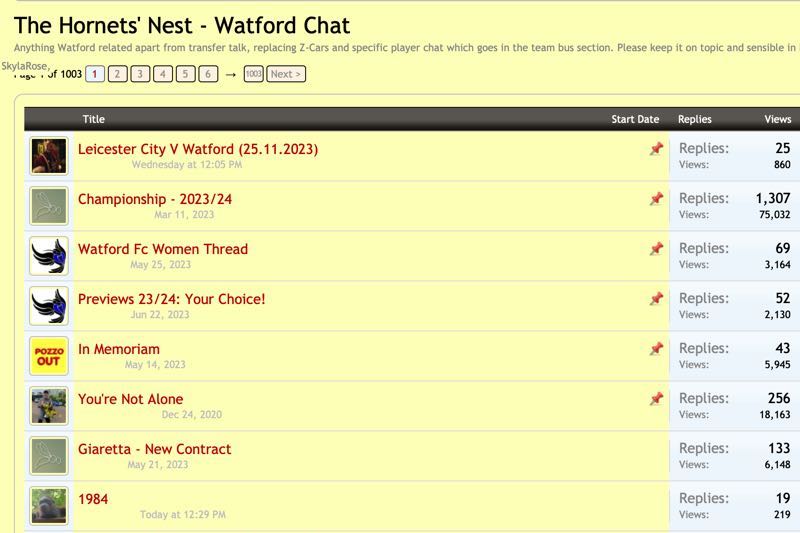After bursting onto the scene in the 1970s, Elton John became one of the most successful musicians, performers and composers in the world. Most people will be familiar with Elton’s musical career and the double Oscar and multiple Grammy winner has cemented his legendary status in the world of pop. But he’s also a legend in the world of football too, at least for Watford fans.
Born in Pinner, about 20 miles south of Watford, in 1947, Sir Elton Hercules John (born Reginald Kenneth Dwight… yep, can see why he changed that!), was a lifelong Watford fan. So, when he gained superstardom – and the piles of cash that came with it – he saw buying his favourite football club as the obvious thing to do. That happened in 1976 when the club were certainly not fulfilling their potential.
How Did Watford Perform in the First Elton Era (1976 to 1990)?
| Season | Division* | Finishing Position | FA Cup |
|---|---|---|---|
| 1976/77 | Division 4 | 7th | Round 3 |
| 1977/78 | Division 4 | 1st | Round 3 |
| 1978/79 | Division 3 | 2nd | Round 2 |
| 1979/80 | Division 2 | 18th | Quarter-Finals |
| 1980/81 | Division 2 | 9th | Round 4 |
| 1981/82 | Division 2 | 2nd | Round 5 |
| 1982/83 | Division 1 | 2nd | Round 5 |
| 1983/84 | Division 1 | 11th | Final |
| 1984/85 | Division 1 | 11th | Round 5 |
| 1985/86 | Division 1 | 12th | Quarter-Finals |
| 1986/87 | Division 1 | 9th | Semi-Finals |
| 1987/88 | Division 1 | 20th | Quarter-Finals |
| 1988/89 | Division 2 | 4th | Round 5 |
| 1989/90 | Division 2 | 15th | Round 4 |
*Note that this was the pre-Premier League era, so Division 1 was the top tier of English football at the time
When Elton John purchased Watford in 1976, they were languishing towards the bottom of Division 4, the fourth tier of English football. Indeed, at one point the club languished at the very bottom of the Football League and faced the prospect of dropping into non-league football. Elton installed Graham Taylor as manager. The former Grimsby Town player had gone into management early after injury cut short his playing career and he’d just led Lincoln City to the Fourth Division title. It proved a very shrewd appointment.
Taylor wasted no time in repeating the promotion trick with his new club, leading Watford to the Fourth Division title in his first season in charge. He followed up with promotion to the second tier after leading Watford to the runners-up spot the next year. Three seasons in the second tier followed and then, in 1981/82, Watford achieved their owner’s dream by gaining promotion to the top flight of English football.
Remarkably, Watford almost created one of the greatest stories in football history when they mounted an unlikely First Division title challenge in 1982/83. Unfortunately for the Hornets, they’d arrived in the top flight right in the middle of Liverpool’s dominance of English football and the Reds won the league by 11 points. Still, a second-place finish was a fantastic achievement for a club who had been in the bottom division just a few seasons before.
They almost tasted cup glory the following season too when they made it to Wembley for the FA Cup final. Once again it was a team from Merseyside who got the better of them – this time Everton. Despite Watford having some fine players, notably a young John Barnes, Mo Johnston and Kenny Jackett, Everton were a team on the up under Howard Kendall’s stewardship and their brilliant strike force of Andy Gray and Graeme Sharp each bagged a goal to break Hornet hearts.
Elton’s Second Watford Era (1997 to 2002)?

Elton John’s second stint as Watford chairman was neither as long nor really as successful as his first. But there was certainly an element of déjà vu as he helped the Hornets battle their way to the top flight (now the Premier League). Indeed, in an effort to relive the (relative) glory years, John installed his trusted buddy Graham Taylor as manager once again.
From a mid-table finish in the third tier in the 1996/97 season, the Taylor/John partnership weaved its magic to win the division the following season to gain promotion to the second tier. They followed up with immediate promotion to the Promised Land of the Premier League after finishing in fifth position but winning the play-offs.
Things didn’t go to plan in the Premier League in the 1999/2000 season, however, and Watford finished rock bottom of the division having amassed just 24 points from their 38 games, leaving them 12 points behind 17th-placed Bradford City. After a couple of seasons of taking stock in the second tier, Elton decided to pass on the baton to a new chairman who could devote more time to the role. Though the musical legend did remain in the honorary role of Life President.
Elton is still celebrated by the club and in 2014 the redeveloped East Stand of their Vicarage Road ground was renamed the Sir Elton John Stand. The ceremony, attended by the Tiny Dancer singer, came hot on the heels of the ceremony to rename another of the stands the Graham Taylor Stand, and thus one of the greatest owner-manager partnerships in English football will endure for as long as Watford remain at their current stadium.
Elton John – Watford’s Greatest-Ever Signing (and Singer)?
We will never know what would have happened to Watford Football Club had Sir Elton not put his money where his mouth was and purchased the club in the 1970s. Given that they were flirting with relegation from the football league at the time, it is certainly feasible that they could have dropped to non-league football and even gone bust.
Instead, Watford enjoyed the most exciting period in the club’s history, and though it wasn’t quite perfect, they were just a few wins away from winning the First Division in 1982/83 and a couple of goals away from FA Cup glory the following season. Even so, there is no doubt that Elton John (and his partner in success, Graham Taylor) had a massively positive effect on the club and he will be forever remembered for his contribution.





